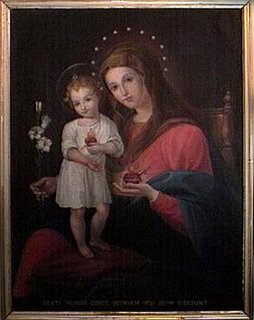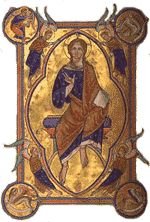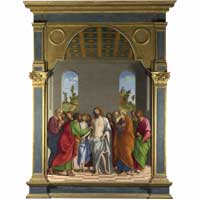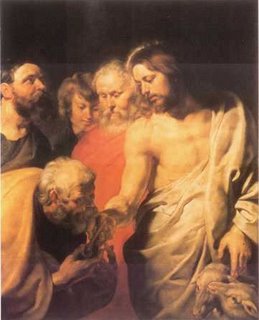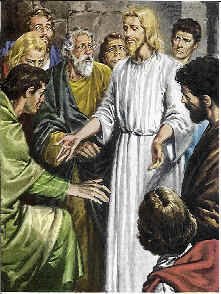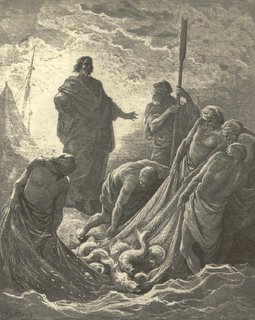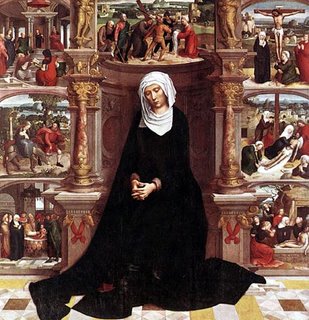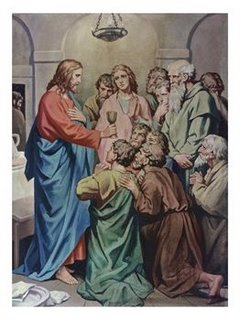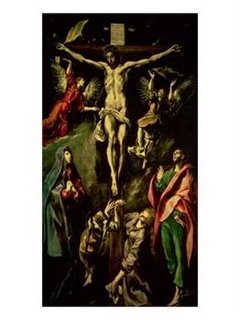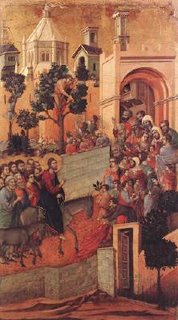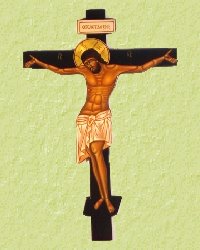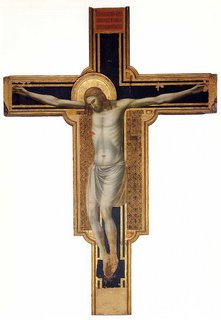 SECOND SUNDAY AFTER EASTER
SECOND SUNDAY AFTER EASTER The Good Shepherd Sunday - I am the good Shepherd. I know my sheep and my sheep know Me
"Counsels To A Religious On How To Reach Perfection" by St. John of the Cross
Jesus Mariae filius
1. Your holy Charity with few words asked me for a great deal. An answer would require much time and paper. Seeing, then, that I lack both of these, I will try to be concise and jot down only certain points and counsels that in sum will contain much, so that whoever observes them perfectly will attain a high degree of perfection. The one who wishes to be a true religious and fulfill the promises of the profession that was made to God, advance in virtue, and enjoy the consolations and the delight of the Holy Spirit, will be unable to do so without trying to practice with the greatest diligence the four following counsels concerning resignation, mortification, the practice of virtue, and bodily and spiritual solitude.
2. In order to practice the first counsel, concerning resignation, you should live in the monastery as though no one else were in it. And thus you should never, by word or by thought, meddle in things that happen in the community, nor with individuals in it, desiring not to notice their good or bad qualities or their conduct. And in order to preserve your tranquility of soul, even if the whole world crumbles you should not desire to advert to these things or interfere, remembering Lot's wife who was changed into hard stone because she turned her head to look at those who in the midst of much clamor and noise were perishing [Gn. 19:26]. You should practice this with great fortitude, for you will thereby free yourself from many sins and imperfections and guard the tranquility and quietude of your soul with much profit before God and others. Ponder this often, because it is so important that, for not observing it, many religious not only failed to improve through their other works of virtue and religious observance, but ever slipped back from bad to worse.
3. To practice the second counsel, which concerns mortification, and profit by it, you should engrave this truth on your heart. And it is that you have not come to the monastery for any other reason than to be worked and tried in virtue; you are like the stone that must be chiseled and fashioned before being set in the building. Thus you should understand that those who are in the monastery are craftsmen placed there by God to mortify you by working and chiseling at you. Some will chisel with words, telling you what you would rather not hear; others by deed, doing against you what you would rather not endure; others by their temperament, being in their person and in their actions a bother and annoyance to you; and others by their thoughts, neither esteeming nor feeling love for you. You ought to suffer these mortifications and annoyances with inner patience, being silent for love of God and understanding that you did not enter the religious life for any other reason than for others to work you in this way, and so you become worthy of heaven. If this was not your reason for entering the religious state, you should not have done so, but should have remained in the world to seek your comfort, honor, reputation, and ease.
4. The second counsel is wholly necessary for religious so they may fulfill the obligations of their state and find genuine humility, inward quietude, and joy in the Holy Spirit. If you do not practice this, you will know neither how to be a religious nor even why you came to the religious life. Neither will you know how to seek Christ (but only yourself), or find peace of soul, or avoid sinning and often feeling troubled. Trials will never be lacking in religious life, nor does God want them to be. Since he brings souls there to be proved and purified, like gold, with hammer and the fire [Ecclus. 2:5], it is fitting that they encounter trials and temptations from human beings and from devils, and the fire of anguish and affliction.2 The religious must undergo these trials and should endeavor to bear them patiently and in conformity to God's will, and not so sustain them that instead of being approved by God in this affliction he be reproved for not having wanted to carry the cross of Christ in patience. Since many religious do not understand that they have entered religious life to carry Christ's cross, they do not get along well with others. At the time of reckoning they will find themselves greatly confused and frustrated.
5. To practice the third counsel, which concerns the practice of virtue, you should be constant in your religious observance and in obedience without any concern for the world, but only for God. In order to achieve this and avoid being deceived, you should never set your eyes on the satisfaction or dissatisfaction of the work at hand as a motive for doing it or failing to do it, but on doing it for God. Thus you must undertake all things, agreeable or disagreeable, for the sole purpose of pleasing God through them.
6. To do this with fortitude and constancy and acquire the virtues quickly, you should take care always to be inclined to the difficult more than to the easy, to the rugged more than to the soft, to the hard and distasteful in a work more than to its delightful and pleasant aspects; and do not go about choosing what is less a cross, for the cross is a light burden [Mt. 11:30]. The heavier a burden is, the lighter it becomes when borne for Christ. You should try, too, by taking the lowest place always, that in things bringing comfort to your brothers in religion they be preferred to you. This you should do wholeheartedly, for it is the way to becoming greater in spiritual things, as God tells us in his Gospel: Qui se humiliaverit exaltabitur3 [Mt. 23:12].
7. To practice the fourth counsel, which concerns solitude, you should deem everything in the world as finished. Thus, when (for not being able to avoid it) you have to deal with some matter, do so in as detached a way as you would if it did not exist.
8. Pay no heed to the things out in the world, for God has already withdrawn and released you from them. Do not handle any business yourself that you can do through a third person. It is very fitting for you to desire to see no one and that no one see you. And note carefully that if God will ask a strict account from all the faithful of every idle word, how much more will he ask it of religious who have consecrated all their life and works to him. And God will demand all of this on the day of reckoning.
9. I do not mean here that you fail to fulfill the duties of your state with all necessary and possible care, and any others that obedience commands, but that you execute your tasks in such a way that no fault is committed; for neither God nor obedience wants you to commit a fault. You should consequently strive to be incessant in prayer, and in the midst of your corporal practices do not abandon it. Whether you eat, or drink, or speak, or converse with lay people, or do anything else, you should always do so with desire for God and with your heart fixed on him. This is very necessary for inner solitude, which demands that the soul dismiss any thought that is not directed to God. And in forgetfulness of all the things that are and happen in this short and miserable life, do not desire to know anything in any way except how better to serve God and keep the observance of your institute.
10. If your Charity observes these four counsels with care, you will reach perfection in a very short time. These counsels are so interdependent that if you are lacking in one of them, you will begin to lose the profit and gain you have from practicing the others.
Degrees Of Perfection
1. Do not commit a sin for all there is in the world, or any deliberate venial sin, or any known imperfection.
2. Endeavor to remain always in the presence of God, either real, imaginative, or unitive insofar as is permitted by your works.
3. Neither do anything nor say any notable word that Christ would not have done or said were he in the state I am, as old as I, and with the same kind of health.
4. Strive for the greater honor and glory of God in all things.
5. Do not omit mental prayer for any occupation, for it is the sustenance of your soul.
6. Do not omit examination of conscience because of any of your occupations, and for every fault do some penance.
7. Be deeply sorry for any time that is lost or that passes without your loving God. 8. In all things, both high and low, let God be your goal, for in no other way will you grow in merit and perfection.
9. Never give up prayer, and should you find dryness and difficulty, persevere in it for this very reason. God often desires to see what love your soul has, and love is not tried by ease and satisfaction.
10. In heaven and on earth, always the lowest and last place and office.
11. Never interfere in what you are not ordered to do, or be obstinate about anything, even though you may be right. And if, as the saying goes, they give you an inch, do not take a mile. Some deceive themselves in such matters and think they have an obligation to do that which - if they reflect upon it well - in no way obliges them.
12. Pay no attention to the affairs of others, whether they be good or bad, for besides the danger of sin, this is a cause of distractions and lack of spirit.
13. Strive always to confess your sins with a deep knowledge of your own wretchedness and with clarity and purity.
14. Even though your obligations and duties are difficult and disagreeable to you, you should not become dismayed, for this will not always be so. And God, who proves the soul by a precept under the guise of a trial [Ps.94:20], will after a time accord it the experience of blessing and gain.
15. Remember always that everything that happens to you, whether prosperous or adverse, comes from God, so that you become neither puffed up in prosperity nor discouraged in adversity.
16. Remember always that you came here for no other reason than to be a saint; thus let nothing reign in your soul that does not lead you to sanctity.
17. Always be more disposed toward giving to others than giving to yourself, and thus you will not be envious of or selfish toward your neighbor. This is to be understood from the viewpoint of perfection, for God is angered with those who do not give precedence to his good pleasure over that of humans.
Soli Deo honor et gloria.
Copyright ICS Publications. Permission is hereby granted for any non-commercial use, if this copyright notice is included. Read whole post......

